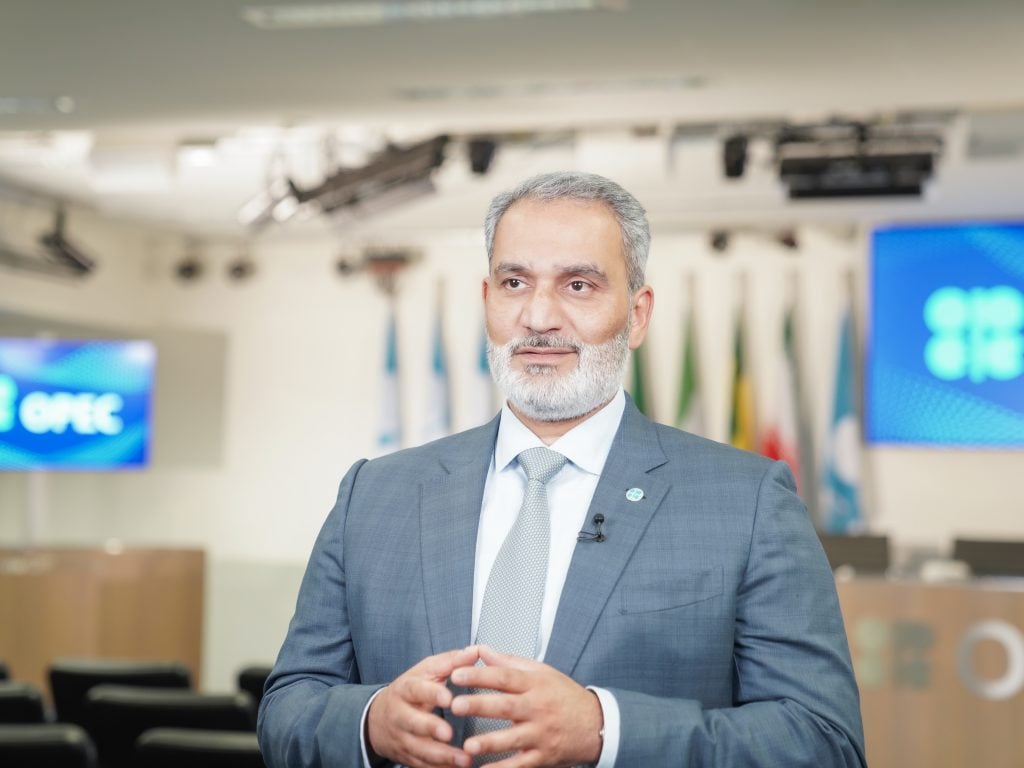OPEC Secretary General Haitham Al-Ghais stressed the role that the oil and gas sector can play in addressing the negative effects of the climate change crisis.
He stressed that the global energy scene requires a common vision that links 3 main challenges to energy sustainability, represented in energy security, affordability, and reducing emissions.
The Secretary-General of OPEC stressed the need to develop a global vision in which all energy sources and all technologies are considered without bias, according to the data seen by the energy platform, quoting the “WAM” agency.
global energy landscape
Al-Ghais stressed the importance of promoting dialogue in the global energy scene with the participation of developed and developing countries and all stakeholders, with the aim of developing and crystallizing a common vision to meet energy challenges.
The Secretary-General of OPEC reviewed the challenges facing energy globally, calling for the necessity of looking unbiasedly at all energy sources and all technologies with a vision in which the interests of all countries are respected, in which all voices are heard and based on multiple paths to reduce global carbon emissions.
He said that the challenges of energy sustainability include goals related to energy security, affordability, and the need to reduce emissions.
He stressed that OPEC believes that investments related to reducing emissions should be directed to technologies such as carbon capture, use and storage, employment of a circular carbon economy, reduction of methane leakage and burning, carbon capture directly from the air, hydrogen production, integration of renewable energy sources in oil and gas operations, and exploitation of smart technologies to increase energy efficiency.
The Secretary General of OPEC stated that the average global production of oil and natural gas reached 100 million barrels of oil per day in 2022, in addition to 4 trillion cubic meters of natural gas.
He said, “OPEC” expectations indicate that the global economy will double by 2045, and the population will also increase, which means an increase in demand for all energy sources by about 23%, including oil and natural gas.
COP28 climate summit
The Secretary General of “OPEC” stated that the COP28 climate summit will constitute an important opportunity to unite the world towards agreeing on practical and ambitious solutions to confront the phenomenon of climate change.
He expected COP28 to be an action-focused, action-oriented conference for all, based on the foundation of innovative, science-backed solutions built on the principles of promoting equality and inclusiveness.
He said that COP 28 would make it possible to achieve ambitious, fair and balanced results, as climate action should ensure a just transition by supporting developing countries and their development in a fair and equitable manner and in light of national circumstances and priorities, and focus on climate financing, exchange of experiences and transfer of technology, in a way that helps In promoting innovations and developing technological solutions that stimulate ambition and remove barriers to joint climate action.

The Secretary-General of OPEC indicated that the Organization and the member states have spared no effort, since the United Nations Conference on the Human Environment in Stockholm in 1972, to give top priority to issues related to the environment and climate change.
FAO has participated in the United Nations Framework Convention on Climate Change since its entry into force in 1994 and fully in the negotiation process under the leadership of the United Nations, with the clear vision that developing countries are often and severely affected by climate change.
Al-Ghais added that OPEC countries are committed to the goals and principles of the agreement and will play an important role in its implementation as active partners, to reach fair and realistic solutions through the central role that the oil and gas industry can play in addressing climate change, including by promoting investment to improve energy efficiency. and technological innovation such as carbon capture and storage technologies.
He stressed that many oil-producing countries are making great strides in adopting renewable and environmentally friendly energy and reducing carbon emissions, pointing to the importance of implementing the financial commitments made at the international level, such as the commitment of developed countries to provide support worth $100 billion annually, to help developing countries under the agreement. United Nations Framework Convention on Climate Change to finance climate action, as this commitment plays an important role in promoting the global transition towards more sustainable energy systems.

Leave a Reply